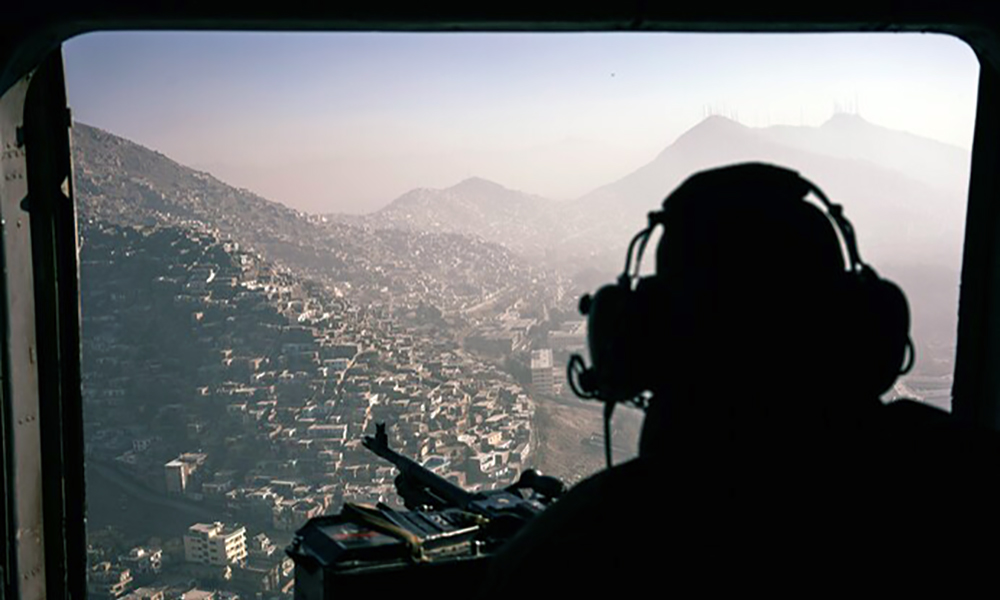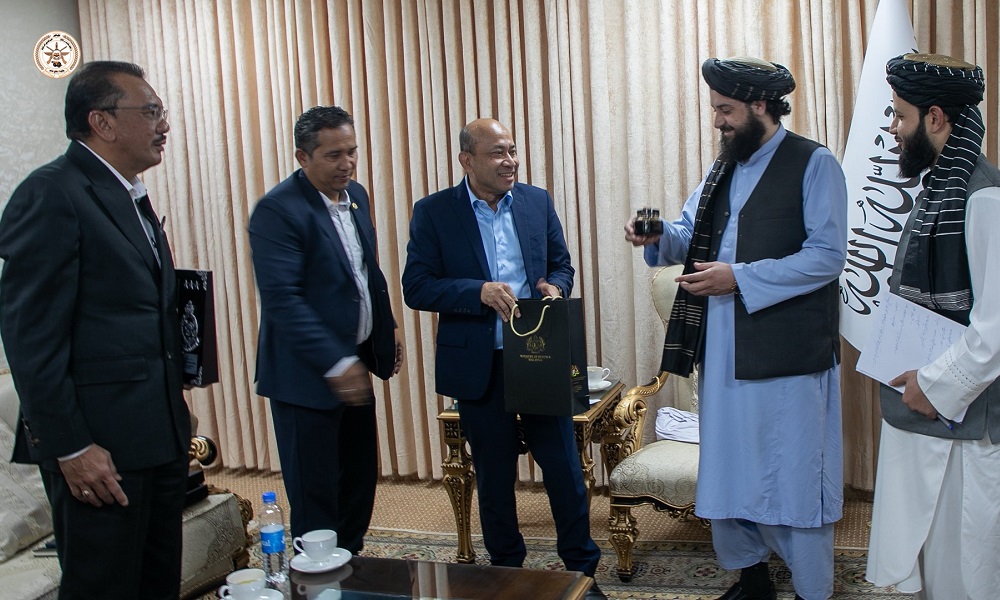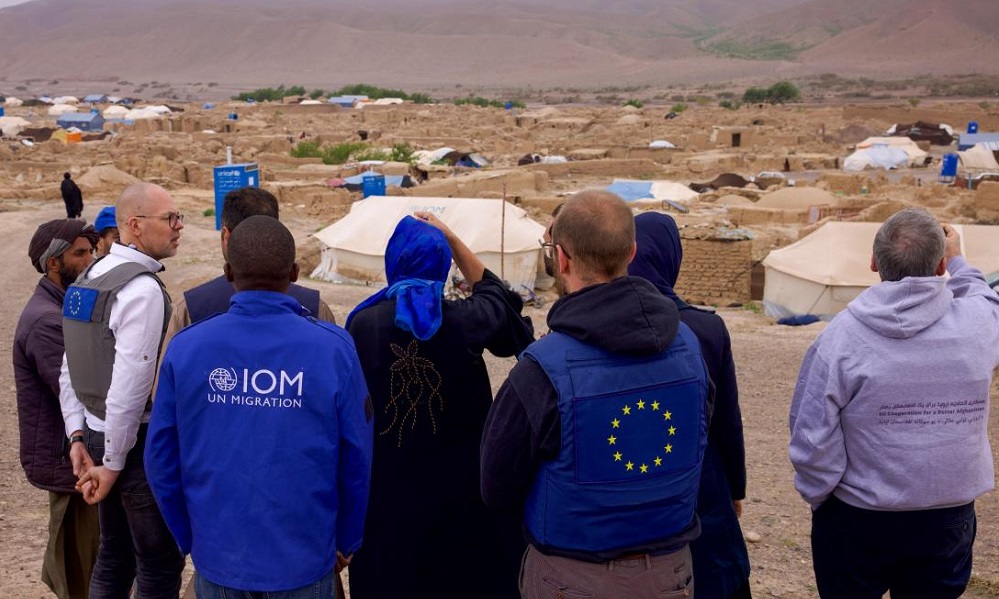Latest News
SIGAR finds Pentagon failed to control disbursement of Afghan defense force salary funds

The Special Inspector General for Afghanistan Reconstruction (SIGAR) issued a report this week in which it stated the Pentagon made $232 million in questionable salary payments to the former government of Afghanistan’s defense ministry personnel for fiscal year 2019 to May 2020.
SIGAR found that during this period, the US Defense Department (DoD) disbursed $232 million to the former Afghan government “for suspicious units and non-existent object codes, or [for salaries] that were never delivered to the bank accounts of MOD personnel.”
The report notes that these payments were calculated outside of the Afghan Personnel and Pay System (APPS) software system, which was put in place to prevent corruption and promote transparency regarding payments to the Afghan National Defense and Security Forces.
The Pentagon reported spending $64.8 million on the software system.
Specifically, SIGAR found that at least $191.9 million in funds for salaries was disbursed but calculated outside of APPS, in addition to disbursing over $40.1 million more for salaries than what was supported by the APPS documentation.
This occurred because the DoD did not use APPS to manage all aspects of the MoD payroll process, did not implement internal controls, and did not use all of the authorities
granted to it to oversee the distribution of salary funds.
The United States provided more than $3 billion annually to support the former Afghanistan National Defense and Security Forces (ANDSF).
Of this $3 billion, more than $750 million paid the salaries of personnel at the Ministries of Defense (MOD) and Interior Affairs, respectively.
The objective of this audit was to determine the extent to which DoD, from 2019 through May 2021, provided accountability and oversight of the funds that DoD provided to the former Afghan government to pay the salaries of MoD personnel.
In an overview of the report to Lloyd Austin, the US Secretary of Defense, SIGAR’s Inspector General John Sopko said the improper payments of MoD salaries persisted following the implementation of APPS.
“Additionally, systemic gaps persisted that may have included enabling corrupt individuals to collect multiple salaries by creating fictitious records in APPS, inflated MoD personnel numbers, or MoD personnel not receiving their salaries,” he said.
“The findings of this report demonstrate core deficiencies related to MoD pay and the continued exposure of funds intended for salaries to corruption, diversion, and pilferage. Furthermore, our findings provide clear indications that MoD strength numbers in APPS were unreliable and misrepresented force capabilities,” he stated.
Latest News
Tripartite trade meeting held in Kabul to boost regional connectivity

A tripartite meeting between the delegations of Afghanistan, Turkmenistan and Kazakhstan was held in Kabul with the aim of connecting North Asia to South Asia and reducing transit and transportation costs among these three countries, the Ministry of Trade and Commerce said in a statement.
In this meeting, an agreement was reached on the creation of a joint technical committee to continue the talks.
This tripartite meeting was held under the leadership of Nooruddin Azizi, the Acting Minister of Industry and Commerce, Vice President of Turkmenistan and Srik Zhumangarin, the Deputy Prime Minister of Kazakhstan.
Earlier, a bilateral meeting was held between the delegation of the Islamic Emirate and Turkmenistan. The ministry of commerce said the participants of the meeting discussed the construction of a large joint logistics center in Torghondi, the trilateral transit agreement between the IEA, Turkmenistan, and Kazakhstan, the expansion of Afghanistan’s railway, solving issues related to Afghan transit and export goods, and a number of other commercial issues.
Latest News
No destructive groups including Daesh present in Afghanistan: Yaqub Mujahid

Acting Minister of National Defense Mohammad Yaqub Mujahid has said that no destructive groups including Daesh have physical presence in Afghanistan, adding the Islamic Emirate of Afghanistan (IEA) will not allow anyone to pose threat to any country in the region from the Afghan soil.
Mujahid made the remarks in a meeting with a delegation from Malaysia in Kabul on Thursday.
According to a statement released by the Ministry of Defense, Mujahid highlighted Malaysia’s “good treatment” of Afghan refugees and its long-standing relations with Afghanistan, and said that Malaysia is a powerful Islamic country and visits should increase.
He added that with the establishment of the Islamic Emirate, occupation and war ended in Afghanistan, and the country is fully secure.
Based on the statement, the Malaysian delegation called Afghanistan a friendly country and while emphasizing on comprehensive cooperation, it assured that what they have seen in Afghanistan will be shared with the authorities of their country.
Latest News
EU allocates 17 million euros to support Afghans on the move

The European Union signed an agreement worth 17 million euros with the International Organization for Migration (IOM) to improve access to basic services, increased economic opportunities and protection for Afghans on the move and their host communities in Afghanistan.
The needs of women and girls are a particular focus of the programme, EU said in a statement released on Thursday.
The statement noted that from January 2023 until April 2024, over 1.5 million Afghans returned from Pakistan and Iran.
“I am deeply moved by the hardship returnees face when being deported to Afghanistan. In a country suffering from poverty and climate change, and in a city that just saw devastating earthquakes, this truly is a crisis within a crisis.”, said Peteris Ustubs, Director for the Middle East, Asia and Pacific of the European Commission’s Department for International Partnerships during the signing ceremony at the IOM transit centre in Herat.
Raffaella Iodice, EU Chargée d’Affaires a.i. to Afghanistan, added “The solidarity of the Afghan people towards their brothers and sisters is an inspiration. We must assure that communities hosting and helping new arrivals are supported. The partnership with IOM ensures access to essential services and provides protection for Afghan returnees and their host communities. As women and girls can be particularly affected, we make sure that all members of society can benefit”.
“IOM’s continued partnership with the EU has been critical in enabling our teams to reach hundreds of thousands of Afghan returnees and other vulnerable communities in the country”, said IOM Afghanistan Chief of Mission, Maria Moita. “Thanks to this renewed commitment, we will be able to focus on addressing the immense challenges in the areas of return and contribute to reintegration, social cohesion, and longer-term solutions for those communities.”
This additional contribution is part of a 5-year programme that is being implemented across Afghanistan and in four countries in the region. It builds on the EU’s previous support to IOM to improve the wellbeing of Afghans forced to return to the country, EU said.
-

 Latest News3 days ago
Latest News3 days agoRashid Khan named AWCC’s brand ambassador
-

 Regional4 days ago
Regional4 days agoIranian president lands in Pakistan for three-day visit to mend ties
-

 Sport4 days ago
Sport4 days agoKolkata beat Bengaluru by one run in IPL as Kohli fumes at dismissal
-

 Sport4 days ago
Sport4 days agoACL: Aino Mina 3-0 Istiqlal Kabul; Attack Energy 3-0 Khadim
-

 Climate Change4 days ago
Climate Change4 days agoRescuers race to reach those trapped by floods in China’s Guangdong
-

 Business5 days ago
Business5 days agoAfghanistan, Kazakhstan to hold joint expo in Kabul
-

 World3 days ago
World3 days agoMalaysian navy helicopters collide in mid-air, 10 killed
-

 Sport3 days ago
Sport3 days agoJaiswal ton powers Rajasthan to big IPL win
























